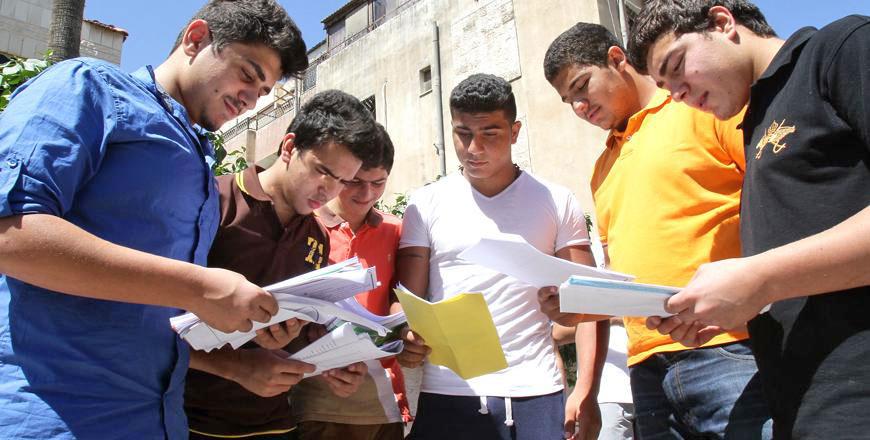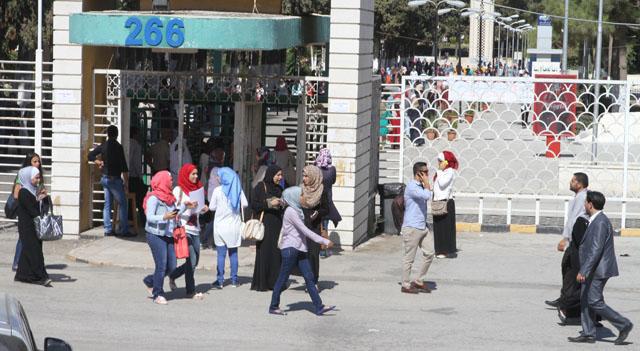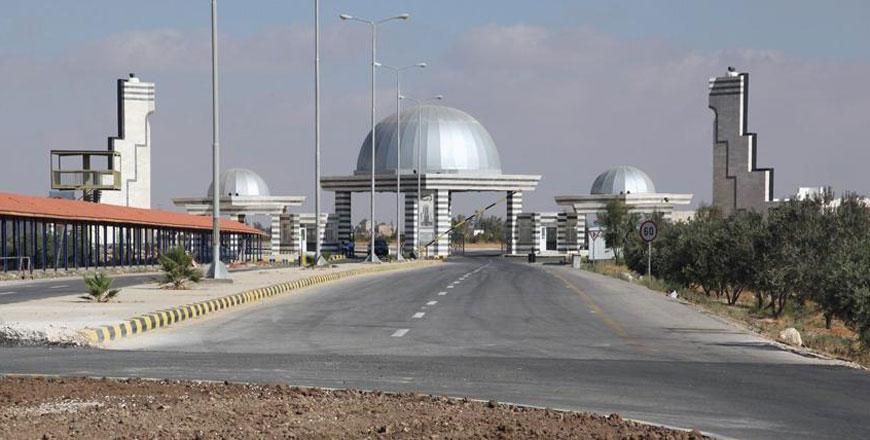You are here
University parallel programme to stay until 2020 — minister
By Ana V. Ibáñez Prieto - Sep 04,2017 - Last updated at Sep 04,2017
AMMAN — A decision to halt parallel programmes at public universities has been postponed till 2020 due to the lack of alternative means of support to offset shortages, a senior official has said.
In a recent interview, Higher Education Minister Adel Tweisi said the decision to eliminate the parallel admissions programme was already approved by the government six months ago, as part of its Human Resources and Development Strategy.
The remarks came as a response to allegations made by the National Campaign for Defending Students Rights (Thabahtoona) on their website last Thursday, which accused the Council of Higher Education of encouraging public universities to become “profitable companies” through its policies on admissions in the last 20 years.
Thabahtoona’s member Yazan Hijawi told The Jordan Times that “lawmakers are encouraging universities to accept students through the parallel admission programme, which highly affects the outcome of the educational process as many great students cannot afford such high fees”.
Hijawi referred to the recent decision by the Council of Higher Education to allow universities to accept only 30 per cent of their students through the parallel programme.
He added that “it did not take them long to go back on that decision” as it was announced that the measure has been postponed to the following year.
In this regard, Thabahtoona advised the Council of Higher Education to “review the parallel programme and work to phase it out gradually over five years”.
However, the minister also noted that the elimination of this programme comes with the need to economically compensate universities.
“The government discussed this issue and decided that we are not in the position to compensate the universities at the moment,” he explained, noting that the decision has been postponed to 2020.
Hijawi also denounced the inclusion of the World Islamic Science and Education University, stating that “it is not an official university but it is already accepting students directly”, adding that “this is just a new promotion method for this university”.
As a response, Tweisi clarified that the World Islamic Science and Education University was established in Jordan through a “special law”, adding that “all specially established universities are able to join the unified admissions list”.
Regarding the fees per credit hour, Thabahtoona demanded that the Council of Higher Education prepare a study on the fees established by public universities and urged them to cancel their decision allowing universities to open new specialisations based on fees determined by their own departments.
Tweisi replied that “this would be completely impractical, since new demands continue to appear in the labour market every day, and universities need to respond to them by creating new programmes that meet these needs”.
When asked about the increasing tuition fees, the minister pointed out that “this is an issue which is out of the council’s authority, since the fees are established by the board of trustees of each university”.
In a final statement published on its official website, Thabahtoona concluded that “governmental universities are built from the citizens’ pockets and funds, and if continued these will only lead to further systematic destruction of our universities and educational institutions”.
Related Articles
AMMAN — The National Campaign for Defending Students’ Rights (Thabahtoona) on Monday called for the revision of educational policies concern
AMMAN — The National Campaign for Defending Students’ Rights (Thabahtoona) is accusing universities of advertising lower fees on the unified
AMMAN — The Higher Education Council's recent decision to allow students with 60 to 64.9 per cent Tawjihi score to enroll under the parallel














